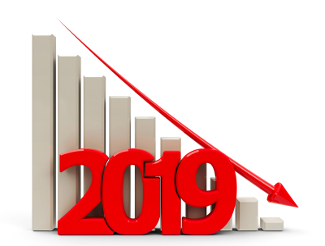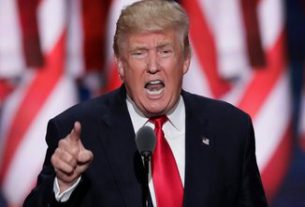There’s been a lot of talk about how the government shutdown is harming the economy, with millions of dollars of losses piling up each day. The longer the shutdown lasts, the worse it is for the economy according to this point of view. But is that really true?
There are undoubtedly many companies that have been negatively affected due to the shutdown. Among those are companies that do a great deal of business with the government or whose customers are government workers, such as Marriott, which has seen double digit decreases in business as a result of the shutdown. All those government workers who would have been traveling for work, attending conferences, etc., aren’t staying at hotels anymore, so it’s natural to see a slowdown there.
Then you have businesses that need regulatory approval from government agencies and who aren’t getting that approval because the agencies they deal with are shut down. One example of that is Southwest Airlines, which hasn’t been able to get approval for a route to Hawaii that it would like to start serving. And of course everyone has heard about breweries, who need to get approval for new labels, waiting for the government to open back up.
The big fear is that a government shutdown will have a negative effect on GDP, as government spending is one of the components of GDP. Those fears are overblown for two reasons. First, government spending has only decreased by about 7% during the supposed shutdown. That’s not a huge amount. Second, all of the money that would have been spent will still be spent, just later in the year. Workers will receive back pay, funds that are waiting to be disbursed will go out, etc. So in the short term there might be a minor hit to GDP, but in the long run it shouldn’t really affect too much.
Where the government shutdown will really hit hard is in expectations about the future. How will the government address issues of taxation, regulation, and trade? If the government is this split when it comes to the basic issue of funding its operations, how will it respond in a unified manner when the economy begins to slow down? Those are real concerns that investors and markets have.
With every indication that the economy is already slowing down, investors are justifiably afraid that the government will completely drop the ball when it comes to dealing with a recession. It’s far more likely to do the wrong thing than the right thing. That’s why so many investors are beginning to flock to gold once again.
Gold has served as a safe haven asset for centuries. In times of economic and political uncertainty gold provides stability and a store of value that investors need. And with modern innovations such as gold IRAs it’s easier than ever to invest in gold. So if you want to make sure that your retirement assets remains safe and secure in the face of a coming recession, you owe it to yourself to look into investing in gold.
This article was originally posted on Goldco.




